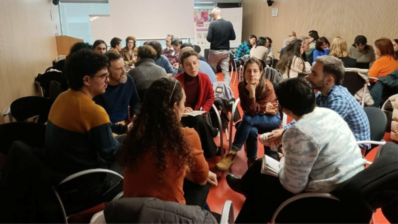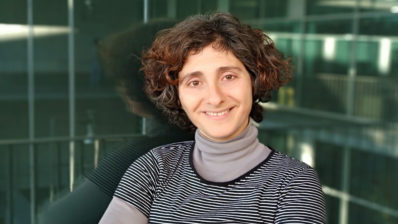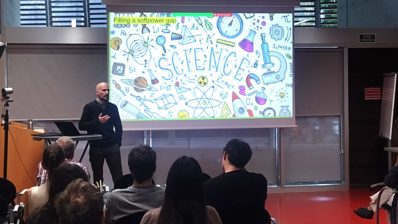This article has been written by Giorgio Ravanelli – a biophysicist doing his PhD in the EMBL-CRG Collaboratorium – in representation of the BeyondAbility group at the PRBB.
When we think of disabilities, our focus often gravitates toward the limitations they impose. We describe a blind person as unable to see, a person with hearing loss as unable to hear without aids, someone with a learning disability as struggling in academic settings, or a person in a wheelchair as unable to walk. In our languages, “disability” often becomes synonymous with absence or lack. Even in Catalan sign language, “disability” is depicted by a gesture mimicking severed hands. Our words shape our thoughts, and this linguistic framing quickly constructs a “wall of cannot”—a barrier that fuels conscious and unconscious discrimination. This wall is a fertile ground for prejudice.
BeyondAbility@PRBB was born to help people see beyond this wall, challenging biases and embracing the value inherent in human diversity. We are a diverse group of individuals with and without disabilities from the PRBB centres – currently with members from the Department of Medicine and Life Sciences (MELIS-UPF), the Institute for Evolutionary Biology (IBE: CSIC-UPF), the Centre for Genomic Regulation (CRG), and the Barcelona Institute for Global Health (ISGlobal). Our missions are:
- to serve as a resource for the PRBB community on disabilities questions, support, and requests
- to raise awareness and foster education on disability-related topics.
As a first step in this journey, we engaged with the public during PRBB’s open day through a small but impactful stand featuring two main activities.
In the first activity, we invited adults and young adults to encapsulate their understanding of “disability” in a single word, write it on a Post-it, and place it on a wall. The response was enthusiastic, yielding a variety of perspectives summarized in this word cloud.
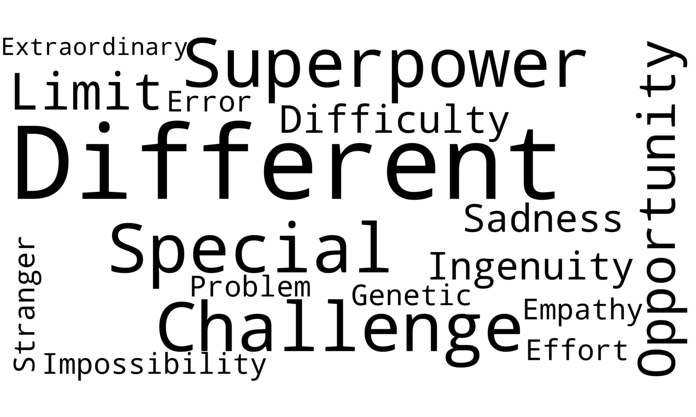
The most frequent term was “different,” which aligns with the linguistic implication of “disability” as something “outside the norm”. Interestingly, one participant described disability as a “genetic error,” a stark reminder of the semantic area that we explore with our minds when we think about this word. Conversely, many associated disability with qualities like “superpower,” “ingenuity,” or “opportunity.” These positive terms were almost exclusively chosen by people with disabilities or those close to someone with a disability.
Our second activity targeted younger participants. We designed a series of exercises to simulate living with a disability. Children started by drawing while blindfolded, then identified objects in a bag without using sight, and finally attempted to read a text with scrambled moving words to mimic dyslexia.
Afterward, we asked them to describe their experience by selecting words from a printed list. Many described it as “strange” or “insecure,” while others found it “funny” and “different.” The aim of these exercises was to demonstrate how compensatory skills, like touch or pattern recognition, can offer new ways of perceiving and interacting with the world.
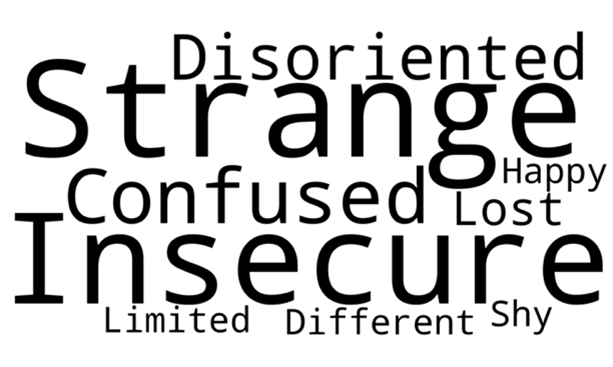
A compelling example we shared was Wanda Díaz-Merced, a blind Puerto Rican astronomer who developed a method to translate astronomical data into sound. This innovation not only allowed her to analyze data audibly but also advanced the field of massive object discovery. Her story illustrates how losing one ability can lead to remarkable new perspectives and solutions.
“Losing one ability can lead to remarkable new perspectives and solutions”

These activities revealed a strong public interest in understanding disability and its nuances. They also highlighted the inherently negative connotations of the word “disability”. Yet, when people engaged with the topic, they often discovered its positive aspects—ingenuity, adaptability, and unique perspectives.
Our goal is to transcend the limitations implied by the term “disability,” fostering an inclusive environment that celebrates the richness of diverse experiences. Disability can indeed be an ability, and it is vital to nurture a community that values and supports everyone equally.
From BeyondAbility@PRBB, we aspire to cultivate a workplace where disabilities are embraced as a form of diversity, not a restriction. Will you join us? Write to edi@prbb.org to get in touch! You can also fill in this survey.


